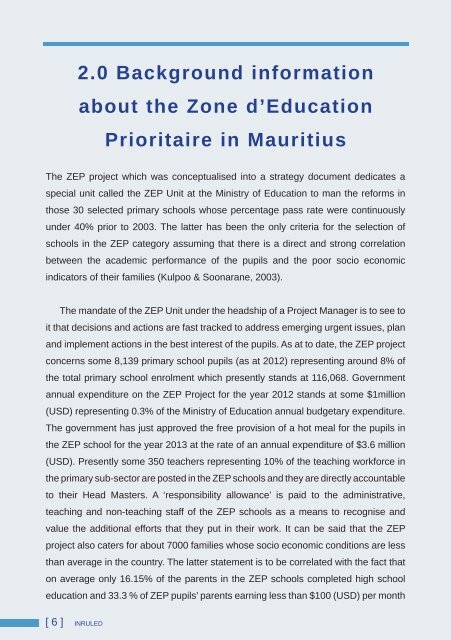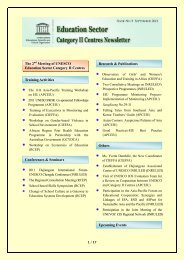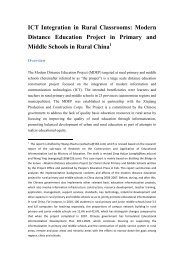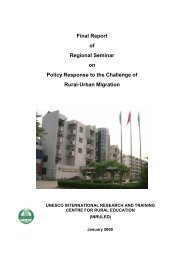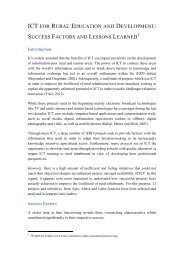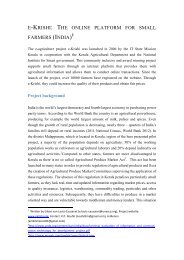Download - inruled
Download - inruled
Download - inruled
Create successful ePaper yourself
Turn your PDF publications into a flip-book with our unique Google optimized e-Paper software.
2.0 Background information<br />
about the Zone d’Education<br />
Prioritaire in Mauritius<br />
The ZEP project which was conceptualised into a strategy document dedicates a<br />
special unit called the ZEP Unit at the Ministry of Education to man the reforms in<br />
those 30 selected primary schools whose percentage pass rate were continuously<br />
under 40% prior to 2003. The latter has been the only criteria for the selection of<br />
schools in the ZEP category assuming that there is a direct and strong correlation<br />
between the academic performance of the pupils and the poor socio economic<br />
indicators of their families (Kulpoo & Soonarane, 2003).<br />
The mandate of the ZEP Unit under the headship of a Project Manager is to see to<br />
it that decisions and actions are fast tracked to address emerging urgent issues, plan<br />
and implement actions in the best interest of the pupils. As at to date, the ZEP project<br />
concerns some 8,139 primary school pupils (as at 2012) representing around 8% of<br />
the total primary school enrolment which presently stands at 116,068. Government<br />
annual expenditure on the ZEP Project for the year 2012 stands at some $1million<br />
(USD) representing 0.3% of the Ministry of Education annual budgetary expenditure.<br />
The government has just approved the free provision of a hot meal for the pupils in<br />
the ZEP school for the year 2013 at the rate of an annual expenditure of $3.6 million<br />
(USD). Presently some 350 teachers representing 10% of the teaching workforce in<br />
the primary sub-sector are posted in the ZEP schools and they are directly accountable<br />
to their Head Masters. A ‘responsibility allowance’ is paid to the administrative,<br />
teaching and non-teaching staff of the ZEP schools as a means to recognise and<br />
value the additional efforts that they put in their work. It can be said that the ZEP<br />
project also caters for about 7000 families whose socio economic conditions are less<br />
than average in the country. The latter statement is to be correlated with the fact that<br />
on average only 16.15% of the parents in the ZEP schools completed high school<br />
education and 33.3 % of ZEP pupils’ parents earning less than $100 (USD) per month<br />
[ 6 ] INRULED


